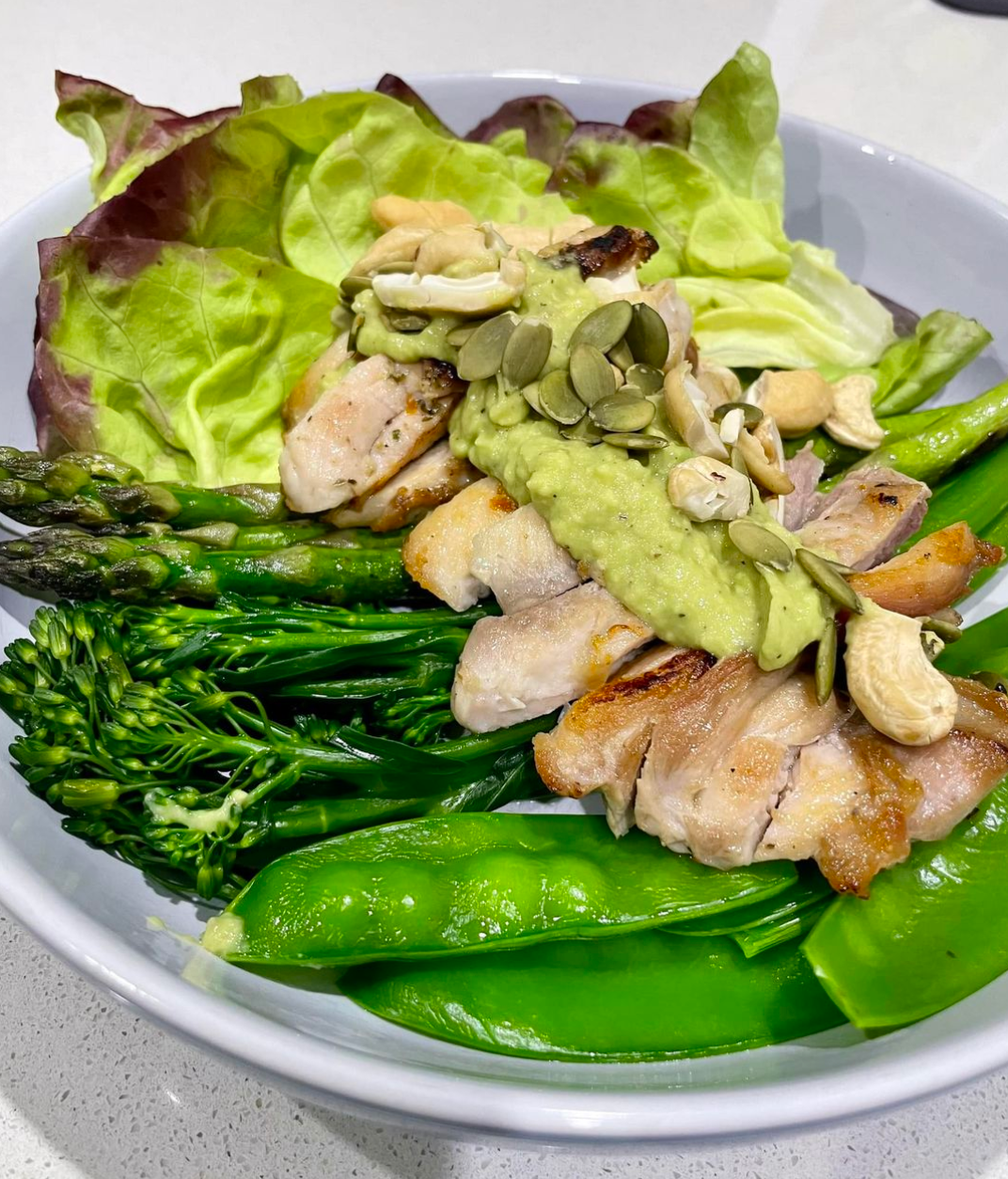
10 Easy Food Swaps to Improve Your Gut Health
At Zing Wellbeing we are passionate about gut health and so many of our recipes have a huge gut health focus.
A healthy gut is the cornerstone of overall wellbeing — affecting everything from digestion to mood, immunity, energy, and even weight management.

If you're looking for a simple but powerful way to boost your gut health, small changes can make a big difference. In fact, making smart food swaps is one of the easiest ways to nourish your gut microbiome without feeling like you're missing out.
Here are 10 easy food swaps you can make today to support a stronger, healthier gut.
1. Swap White Bread for Sourdough
Why:
White bread is low in fibre and can spike blood sugar levels, which isn't ideal for your gut microbiome. Sourdough, especially when made traditionally, is fermented — meaning it contains beneficial bacteria and is easier to digest.
Bonus: It's naturally lower in gluten and has a lower glycaemic index!

2. Swap Flavoured Yogurt for Natural Greek Yogurt
Why:
Flavoured yogurts often contain added sugars that feed the "bad" bacteria in your gut. Natural Greek yogurt, on the other hand, is packed with live probiotics that feed your "good" gut bacteria and support digestion.
Tip: Add your own fruit for natural sweetness!

3. Swap Soft Drinks for Kombucha
Why:
Soft drinks are loaded with sugar and artificial additives that can cause gut inflammation. Kombucha is a fermented tea rich in probiotics and antioxidants, helping to restore balance in your digestive system.
Start slow: Too much kombucha too quickly can cause bloating if you're not used to fermented foods!

4. Swap Milk Chocolate for Dark Chocolate (70%+)
Why:
Dark chocolate (at least 70% cocoa) contains polyphenols, a type of antioxidant that acts as fuel for your beneficial gut bacteria. Milk chocolate, unfortunately, is often high in sugar and dairy fillers that can inflame the gut.

5. Swap Refined Cereal for Overnight Oats or Chia Pudding
Why:
Typical breakfast cereals are often ultra-processed and low in real fibre. Overnight oats and chia pudding are fibre-rich, full of prebiotics, and much gentler on your gut.
Added bonus: They help regulate your blood sugar and keep you fuller for longer.

6. Swap Processed Meats for Grilled Chicken, Fish, or Plant-Based Protein
Why:
Processed meats like bacon and ham are linked to gut inflammation and an increased risk of disease. Swapping them for lean protein sources supports healthy digestion and reduces the workload on your gut.

7. Swap Crackers for Veggie Sticks and Hummus
Why:
Most crackers are high in refined carbs and low in nutrients. Veggie sticks like carrot, cucumber, and capsicum paired with hummus offer prebiotic fibre to feed good bacteria and are rich in vitamins that nurture your gut lining.

8. Swap Ice Cream for Coconut Yogurt with Berries
Why:
Ice cream is high in sugar and dairy, both of which can cause gut irritation for many people. Coconut yogurt is dairy-free, probiotic-rich, and when topped with berries, offers a gut-friendly treat that's naturally sweet and nourishing.

9. Swap White Rice for Quinoa or Brown Rice
Why:
White rice has been stripped of most of its fibre and nutrients. Quinoa and brown rice are rich in fibre and plant-based protein, promoting better digestion and feeding your microbiome.
Pro tip: Quinoa is also a complete protein, great for energy and recovery!

10. Swap Packaged Snack Bars for Nuts and Seeds
Why:
Most commercial snack bars are filled with hidden sugars and preservatives. A handful of almonds, walnuts, or pumpkin seeds provides healthy fats, fibre, and micronutrients that support gut health and reduce inflammation.

Final Thoughts
You don't need a complete diet overhaul to nurture your gut — small, consistent changes have the biggest long-term impact.
By making these simple food swaps, you're helping to diversify your gut microbiome, reduce inflammation, improve digestion, and boost overall health.
Remember:
-
Focus on whole, unprocessed foods.
-
Incorporate plenty of fibre.
-
Add fermented foods for probiotics.
-
Limit added sugars and ultra-processed foods.
Your gut will thank you!
And you can check out our Gut Health Book here


